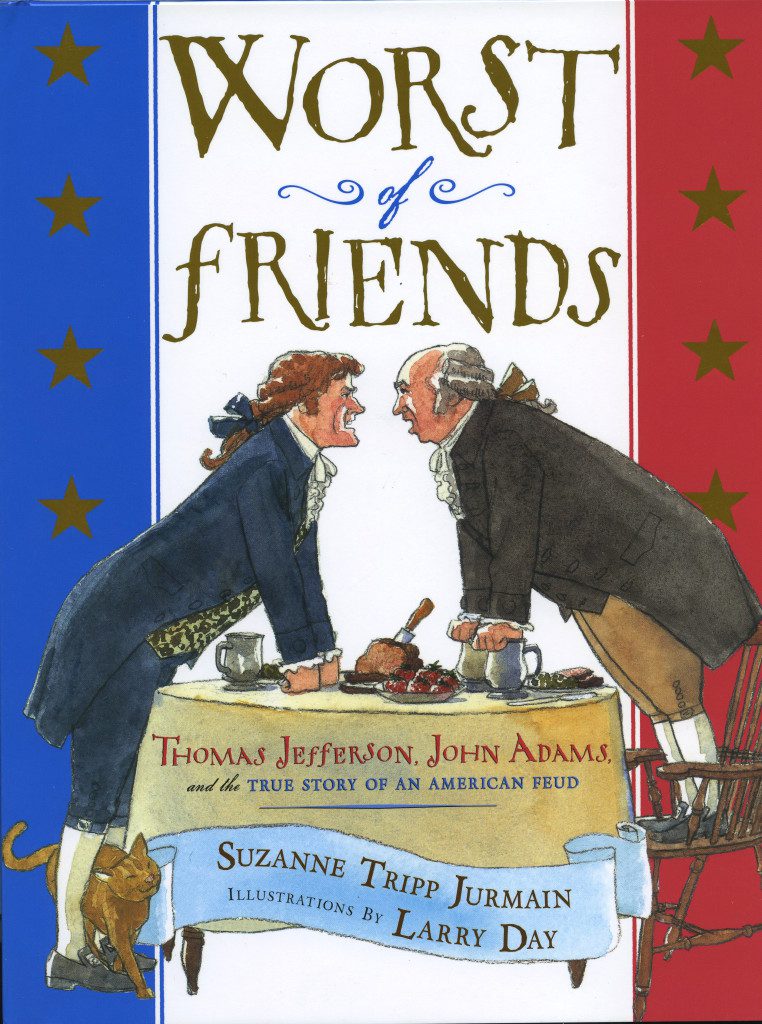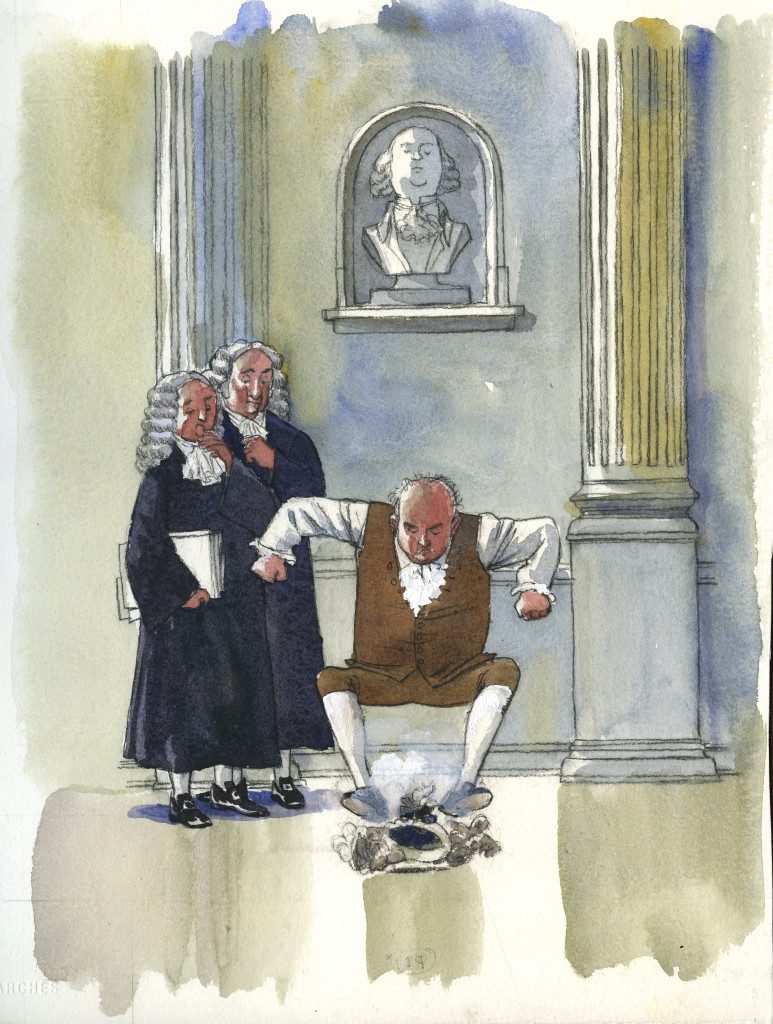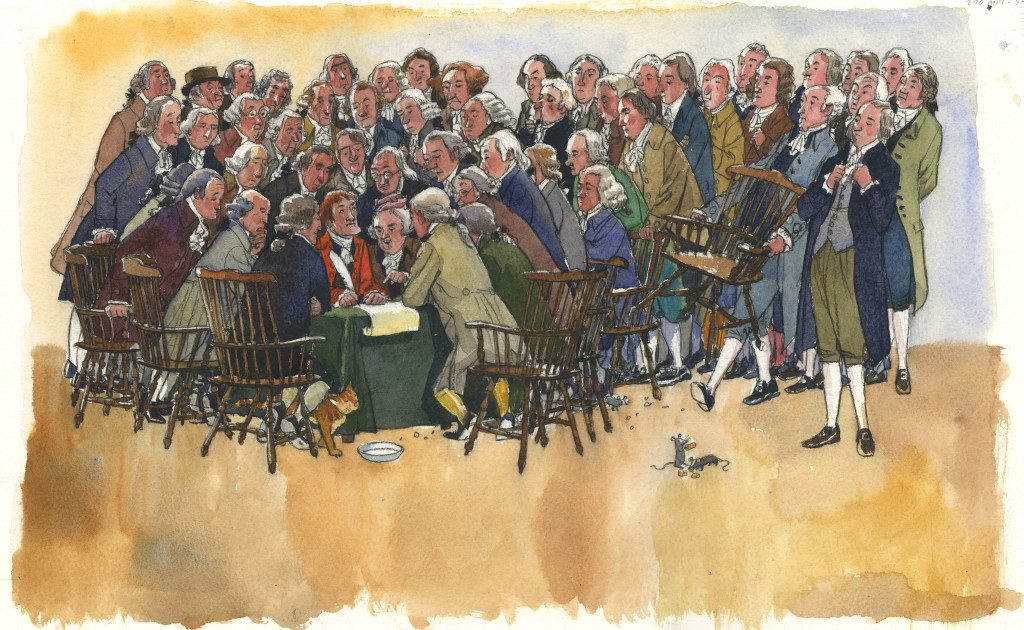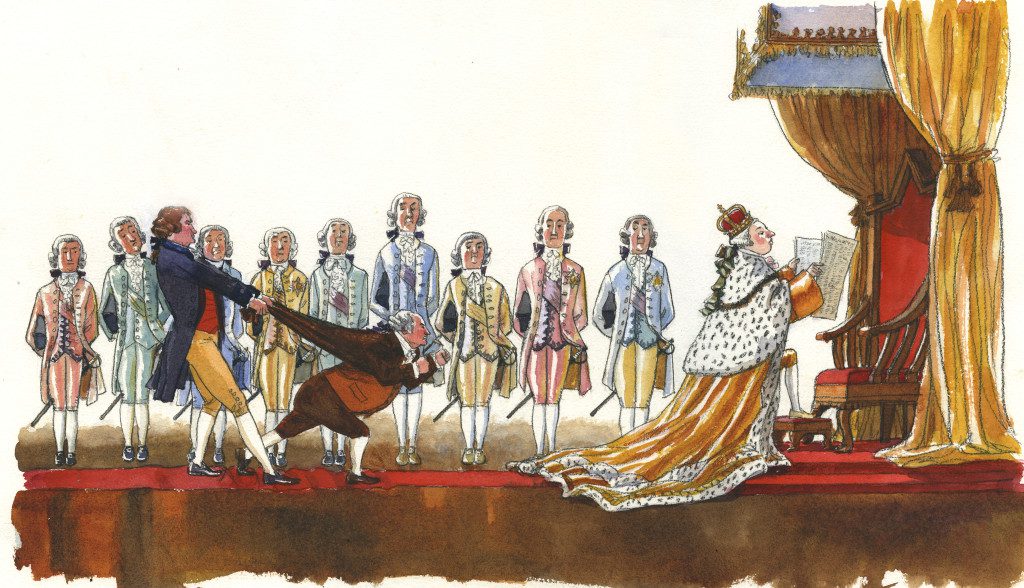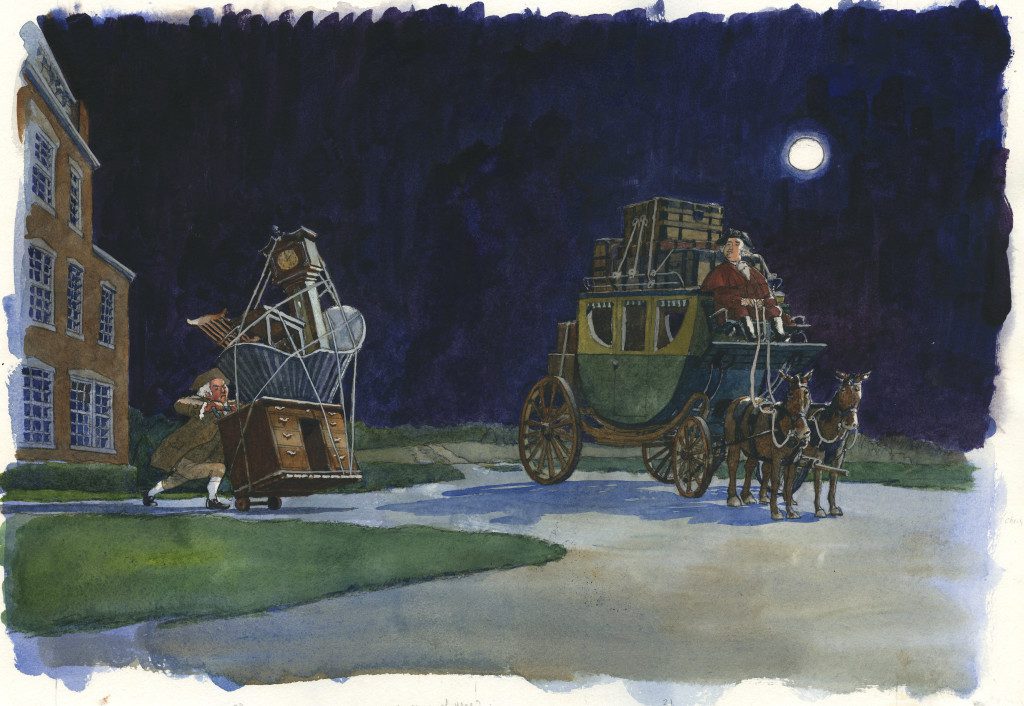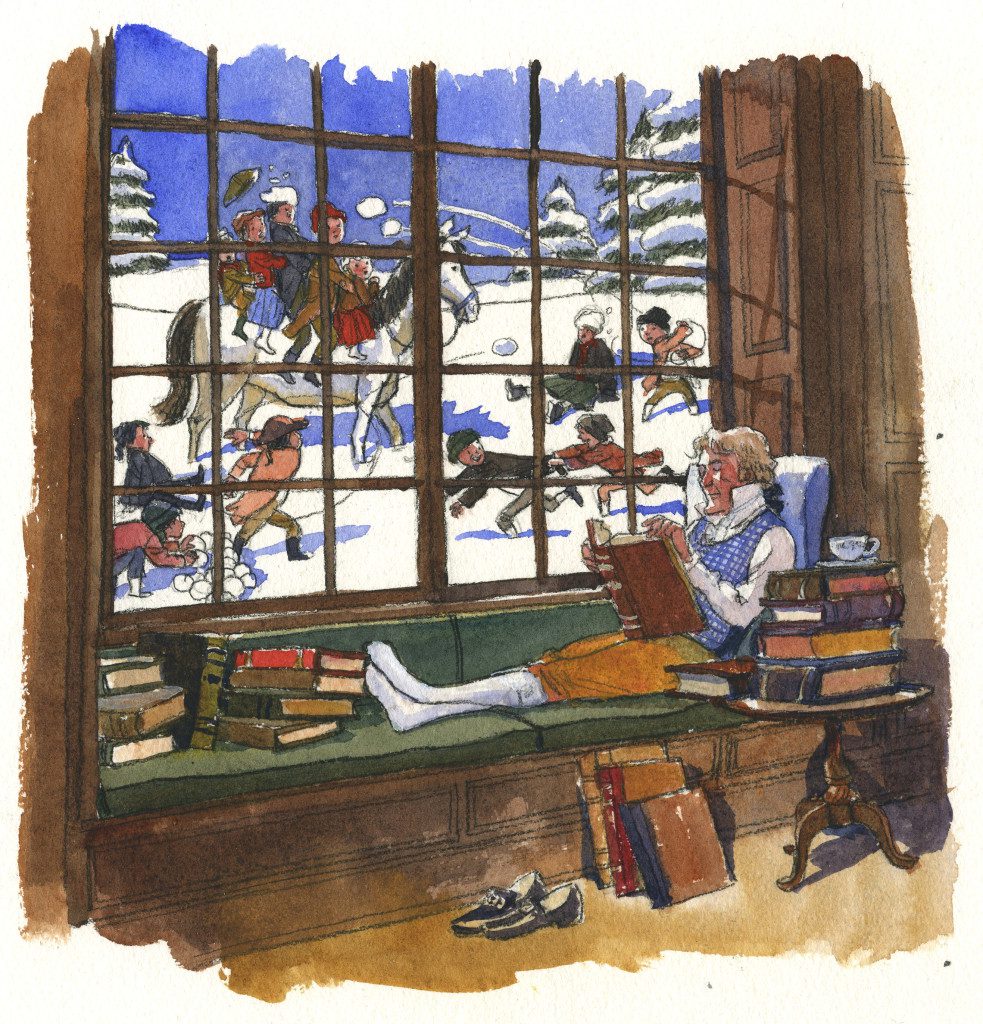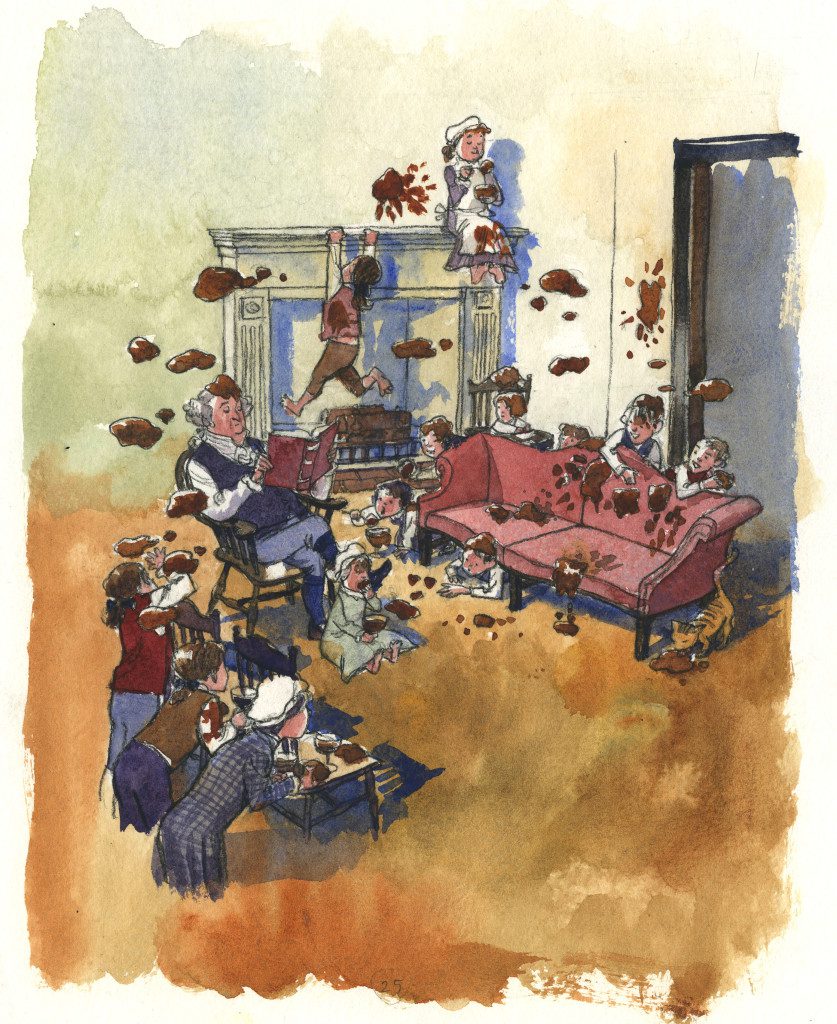written by Suzanne Jurmain
Dutton, 2011
- Junior Library Guild selection
“In 1978 I took an American History course in my first year of college. My professor had done his dissertation on the relationship between Adams and Jefferson. He was such a marvelous teacher that his presentation stayed with me all my life. So years later when Suzanne Jurmain and Larry Day we’re looking for a subject for their next book—I suggested what my wonderful professor taught me many years ago—such is the power of teachers.” –Steve Meltzer, Associate Publisher/ Executive Managing Editor Dutton Children’s Books and Dial Books for Young Read at Penguin Group
“…Entertaining anecdotes about both presidents’ personal and political lives are energized by Day’s lightly caricatured watercolor cartoons, which flesh out their personalities. Day depicts some scenarios with humorous exaggeration, as when Jefferson grabs Adams’s coattails to keep him from pummeling King George, and Adams stealthily carts his possessions out of the White House on the morning of Jefferson’s inauguration.” -Publisher’s Weekly
“…makes early American history more accessible and our founding fathers more human for young students in her book (Dutton, 2011) about the friendship and feud between Thomas Jefferson and John Adams….” -School Library Journal
“…Energetic watercolor-and-pencil drawings accurately represent the late 18th century, showing the dress, style and architecture of the period. Feisty narration paired with amusing illustrations makes light of sticky situations, as when Jefferson physically restrains an angry Adams from assaulting King George and Adams moves himself out of the White House in the dead of night….” -Kirkus
…”Jurmain and Day offer an early-elementary-school account of the Republican/Federalist divide and a story of friendship surmounting ideological differences….” New York Times Sunday Book Review

